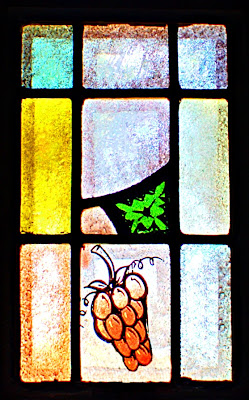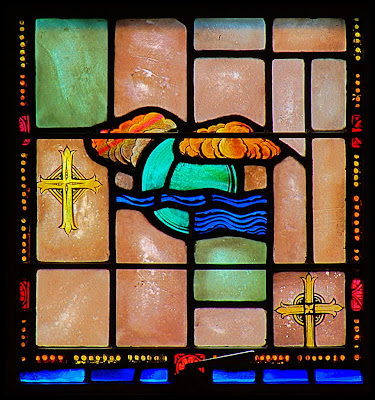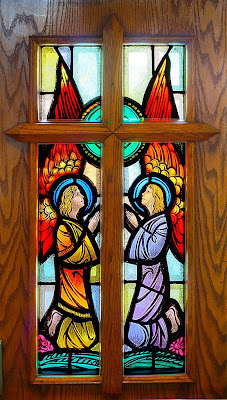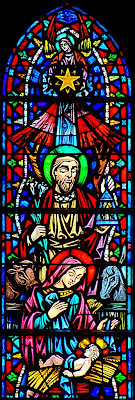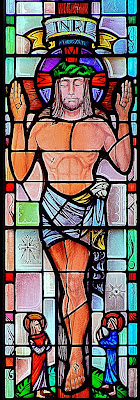 |
| The Shepherds worship Jesus |
And there were shepherds living out in the fields nearby, keeping watch over their flocks at night. An angel of the Lord appeared to them, and the glory of the Lord shone around them, and they were terrified. But the angel said to them, “Do not be afraid. I bring you good news of great joy that will be for all the people. Today in the town of David a Savior has been born to you; he is Christ the Lord. This will be a sign to you: You will find a baby wrapped in cloths and lying in a manger.” Suddenly a great company of the heavenly host appeared with the angel, praising God and saying, “Glory to God in the highest, and on earth peace to men on whom his favor rests.” When the angels had left them and gone into heaven, the shepherds said to one another, “Let’s go to Bethlehem and see this thing that has happened, which the Lord has told us about.” So they hurried off and found Mary and Joseph, and the baby, who was lying in the manger. When they had seen him, they spread the word concerning what had been told them about this child, and all who heard it were amazed at what the shepherds said to them. But Mary treasured up all these things and pondered them in her heart. The shepherds returned, glorifying and praising God for all the things they had heard and seen, which were just as they had been told. (Luke 2:8-20)
There is quite a history of shepherds in the Bible. Faithful Abel was a shepherd. Abraham kept flocks, as well as Isaac, Israel (Jacob), and Israel’s twelve sons. Perhaps the best known shepherd in the Bible is David. When the prophet Samuel went to Jesse’s house in Bethlehem to anoint his youngest son as God’s choice to be the next king of Israel, David was out in the fields tending the sheep.
Though David would become the most faithful and successful king in Israel’s history, he is equally well known as the author of Psalm 23:
 |
The Lord is my shepherd, I shall not be in want. He makes me lie down in green pastures, he leads me beside quiet waters, he restores my soul. He guides me in paths of righteousness for his name’s sake. Even though I walk through the valley of the shadow of death, I will fear no evil, for you are with me; your rod and your staff, they comfort me. You prepare a table before me in the presence of my enemies. You anoint my head with oil; my cup overflows. Surely goodness and love will follow me all the days of my life, and I will dwell in the house of the Lord forever.
It is neither an accident, nor a coincidence that Jesus was born in the same town as King David. God is perhaps the greatest poet in history, linking historical events, prophesy, and the historical fulfillment of prophesy together through Christ. Though the Holy Scriptures frequently use the metaphor of the people as the sheep and God as the shepherd, there is no passage in Scripture more memorable than Psalm 23. It shows us the proper attitude we all should have toward God that a great king such as David would consider himself a lowly lamb who dutifully follows where God leads as his shepherd. This also shows why David is considered a great king, despite his great wickedness and sins. All of David’s success came from God, and he remembered that his whole life.
 |
| Jesus: the Lamb of God |
God had promised David that one of his descendants would be the long-awaited savior of the world. Jesus is the fulfillment of that long-awaited promise. Jesus is both the Good Shepherd, who cares for the sheep, and Jesus is the sacrificial lamb who endures the punishment for the sin of the world. God was with David throughout his whole life. From the time he was a lowly shepherd to when he was king of Israel, God cared for David as a shepherd cares for his sheep. And when David committed great wicked sins, God was there to rebuke David, but only to bring him to repentance so that David would know that all his sins were forgiven for the sake of the promised savior (Jesus). That is the kind of a God we have.
The shepherds who were near Bethlehem on the evening when Jesus was born surely knew God’s promises to send a savior. When they heard the message of the angel they hurried into town to see their savior in the flesh. The shepherds believed the Word of God from the angel though the baby Jesus was seemingly a helpless infant, and Mary and Joseph had to place Jesus in a manger because no one had sacrificed their own comfort to make the incarnate God more comfortable for his first night out of the Blessed Virgin’s womb. When the shepherds returned to their fields they praised God that He had kept His promises and had come to earth in our flesh to redeem us from our sins.
















